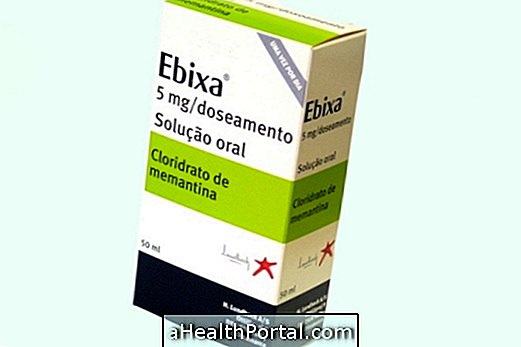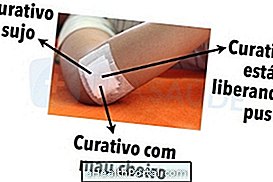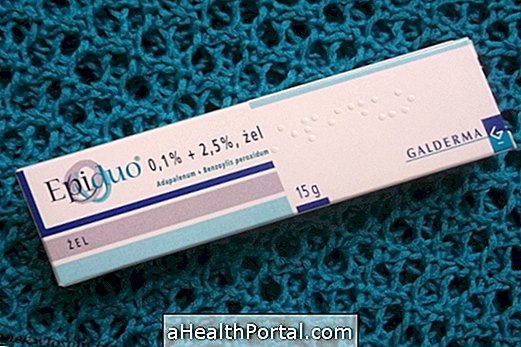The diphtheria, tetanus and pertussis vaccine is given in the form of an injection requiring 4 doses for the baby to be protected, but it is also indicated during pregnancy for professionals working in clinics and hospitals and for all adolescents and adults who have close contact with the newborn.
This vaccine is also called the acellular vaccine against diphtheria, tetanus and pertussis (dtpa) and can be applied to the arm or thigh by a nurse or doctor at the health clinic or at a private clinic.

Who should take
The vaccine is indicated for the prevention of Diphtheria, Tetanus and Pertussis in pregnant women and infants, but should also be applied to all adolescents and adults who may come into contact with the baby at least 15 days before delivery. Thus, this vaccine can also be applied to the grandparents, uncles and cousins of the baby that will be born soon.
Vaccination of adults who will have close contact with the baby is important because pertussis is a serious disease, leading to death, especially in infants less than 6 months of age, who are always infected by people close to them. It is important to take this vaccine because pertussis does not always show symptoms, so the person may be contaminated and not know.
Pregnancy vaccination
The vaccine is indicated to be taken in pregnancy because it stimulates the woman's body to produce antibodies, which then pass into the baby through the placenta, protecting it. Vaccination is recommended between 27 and 36 weeks of gestation, even if the woman has already taken this vaccine in another pregnancy or other dose previously.
This vaccine prevents the development of serious infections, such as:
- Diphtheria: which causes symptoms such as difficulty in breathing, swelling of the neck and changes in heart beats;
- Tetanus: which can cause seizures and spasms of very strong muscles;
- Whooping cough : severe cough, runny nose and general malaise, being very severe in infants less than 6 months of age.
Know all the vaccinations that the baby needs to take: Baby vaccination schedule.
The dTpa vaccine is free as it is part of the basic immunization schedule of the child and the pregnant woman.
How to take
The vaccine is given through an injection into the muscle and it is necessary to take the doses as follows:
- 1st dose: 2 months of age;
- 2nd dose: 4 months of age;
- 3rd dose: 6 months of age;
- Reinforcement: at 15 months; at 4 years and then every 10 years;
- In pregnancy: 1 dose from 27 weeks of gestation or up to 20 days before delivery, at each gestation;
- Health professionals working in maternities and neonatal ICUs will also receive 1 dose of the booster vaccine every 10 years.
The most common body region for administration of the vaccine in children over 1 year of age is the arm deltoid muscle, because in the case of applying to the thigh it leads to difficulty walking due to muscle pain and, in most cases, at this age the child is already walking.
This vaccine can be given at the same time as other vaccines in the childhood vaccination schedule, however it is necessary to use separate syringes and to choose different application sites.
Main Side Effects
For 24-48 hours the vaccine may cause pain, redness, and nodule formation at the site of injection. In addition, fever, irritability and drowsiness may occur.
When not to take
This vaccine is contraindicated for children who have had pertussis in case of anaphylactic reaction at previous doses; if allergic reaction symptoms appear such as itching, red spots on the skin, formation of nodules on the skin; and in case of central nervous system disease; High fever; progressive encephalopathy or uncontrolled epilepsy.





















